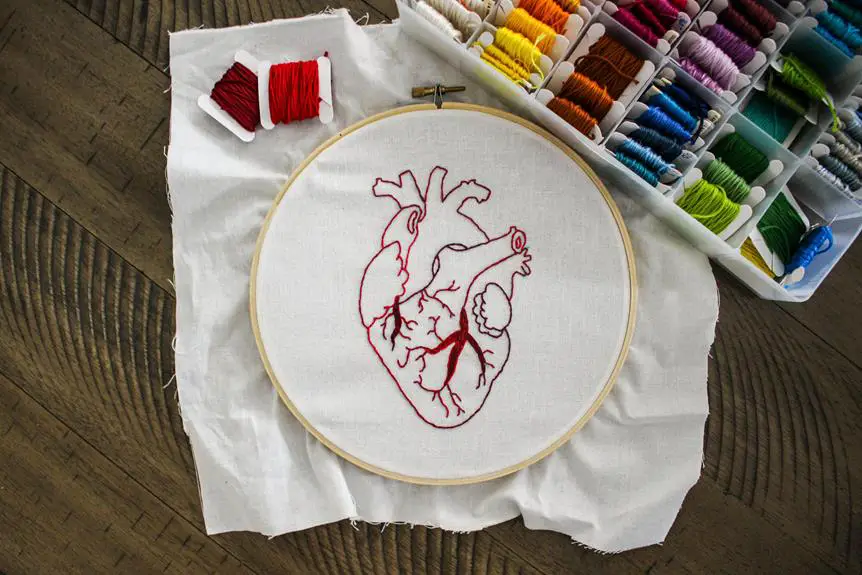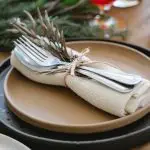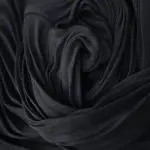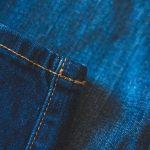Looking to thread the needle with the best industrial threads for fabric? When it comes to stitching with precision and strength, the right choice of thread can make all the difference.
From durable polyester threads to versatile nylon threads, and the natural feel of cotton threads, the options are vast. Kevlar threads offer exceptional resistance, while silk threads bring a touch of luxury. Rayon threads provide a smooth finish, and monofilament threads are ideal for transparent seams.
Understanding the characteristics of each can elevate your mastery in fabric work. Let's delve into the top choices for industrial threads and their unique advantages for your next project.
Key Takeaways
- Synthetic threads, such as polyester and nylon, are known for their strength, durability, and excellent thread tension, making them ideal for manufacturing and automotive applications.
- Natural threads, like cotton, offer breathability and comfort, making them popular for sewing garments and household textiles. They are also more environmentally friendly and biodegradable compared to synthetic fibers.
- Specialty threads, such as Kevlar and silk, have unique properties that make them suitable for specific applications. Kevlar threads are exceptionally strong and heat resistant, making them ideal for heavy-duty fabrics and protective gear, while silk threads add elegance and quality to the finished product.
- Rayon and monofilament threads have their own advantages. Rayon threads mimic the sheen and texture of natural fibers like silk, making them versatile for various fabric projects. Monofilament threads are transparent and blend seamlessly with fabric colors, making them ideal for applications where thread visibility is crucial.
Polyester Threads
When sewing industrial fabrics, you should consider using polyester threads for their strength and durability. Polyester threads are known for their excellent thread tension, which is crucial for maintaining stitching quality, especially on heavy-duty fabrics. The inherent strength of polyester threads ensures that they can withstand high-speed sewing without breaking or causing thread tension issues. This results in consistent and reliable stitching quality, meeting the demands of industrial fabric sewing.
Moreover, polyester threads offer remarkable heat resistance, making them suitable for fabrics that may be subjected to high temperatures during various industrial processes. Additionally, they exhibit excellent chemical compatibility, ensuring that the threads remain durable and stable when exposed to different chemicals used in industrial settings. This makes polyester threads an ideal choice for sewing fabric intended for applications in manufacturing, automotive, or other industries where exposure to heat and chemicals is common.
Nylon Threads
When it comes to industrial sewing projects, you'll want nylon threads for their exceptional strength and durability. They offer a reliable option for heavy-duty fabrics and can withstand the demands of industrial use.
Additionally, nylon threads come in a wide range of versatile color options, making them suitable for various fabric applications.
Strength and Durability
For the strongest and most durable industrial threads for fabric, you should consider using nylon threads. Nylon threads are known for their exceptional strength and durability, making them an ideal choice for heavy-duty sewing projects. Their composition, usually a blend of nylon polymers, gives them superior tensile strength and resistance to abrasion, making them suitable for demanding fabric applications. When it comes to thread tension, nylon threads offer excellent stability and can withstand high levels of tension without breaking or fraying. Here's a comparison of some popular nylon threads:
| Brand | Thread Size | Tensile Strength |
|---|---|---|
| Coats & Clark | 69 | 11 lbs |
| Gutermann | 100 | 16 lbs |
| Superior | 138 | 20 lbs |
These options provide a range of choices depending on the specific strength and durability requirements of your fabric projects.
Versatile Color Options
To continue the discussion on the best industrial threads for fabric, particularly focusing on the versatile color options of nylon threads, you'll find that these threads offer a wide range of vibrant hues to enhance the aesthetic appeal of your sewing projects.
Nylon threads come in versatile thread weights, allowing for flexibility in choosing the right thickness for your specific project. Additionally, color consistency is a key feature of nylon threads, ensuring that the color remains uniform throughout your sewing endeavors.
The impact of thread color on the overall look of your fabric can't be underestimated, and nylon threads provide an extensive palette to match and enhance various fabric colors. Moreover, nylon threads are compatible with fabric dyes, offering the opportunity to create custom colors or match existing shades seamlessly.
Cotton Threads
You'll find that three types of cotton threads are commonly used in industrial fabric applications. When considering cotton threads, it's important to evaluate thread thickness and durability. Thicker cotton threads are generally more durable and suitable for heavy-duty fabrics, while finer threads are better for lightweight materials.
Cotton threads are known for their natural fibers, which offer breathability and comfort. This makes them a popular choice for sewing garments and household textiles. When compared to synthetic fibers, natural cotton threads tend to be more environmentally friendly and biodegradable. However, they may not possess the same level of strength and resilience as their synthetic counterparts.
It's crucial to weigh the specific requirements of your project against the advantages and disadvantages of natural versus synthetic fibers. Ultimately, the choice between natural and synthetic cotton threads will depend on the specific needs of your industrial fabric application.
Kevlar Threads
When choosing industrial threads for fabric, consider Kevlar threads for their exceptional strength and heat resistance. Kevlar threads are commonly used in applications where high tensile strength and heat resistance are crucial. They're ideal for sewing heavy-duty fabrics such as canvas, leather, and upholstery, as well as for stitching industrial workwear, protective gear, and outdoor equipment like tents and sails. Compared to other industrial threads, Kevlar threads offer superior performance in demanding environments.
In terms of comparison, Kevlar threads stand out due to their remarkable tensile strength, which is five times stronger than steel on an equal-weight basis. This exceptional strength makes Kevlar threads highly resistant to cuts and abrasions, providing durability in challenging conditions. Additionally, Kevlar threads exhibit excellent heat resistance, making them suitable for applications where exposure to high temperatures is a concern.
When compared to other industrial threads such as polyester or nylon, Kevlar threads offer unparalleled strength and heat resistance, making them a top choice for demanding fabric sewing applications.
Silk Threads
Silk threads are highly sought after for their combination of strength and smoothness, making them ideal for a wide range of fabric applications. Whether it's weaving intricate patterns or creating delicate embroidery, silk threads offer versatility and durability.
Their ability to hold up well under tension and their beautiful luster make them a top choice for many industrial fabric projects.
Strength and Smoothness
For a fabric with a combination of strength and smoothness, consider using silk threads. Silk threads are known for their exceptional strength and elasticity, making them ideal for creating durable fabrics that can withstand wear and tear. In addition to their strength, silk threads also impart a luxurious smoothness and sheen to the fabric, adding to its appeal and quality.
When using silk threads for industrial purposes, keep in mind the following:
- High Tensile Strength: Silk threads boast impressive tensile strength, ensuring that the fabric will hold up well under tension and stress.
- Exceptional Smoothness: The fine texture of silk threads contributes to the smoothness of the fabric, creating a soft and comfortable feel.
- Elegant Sheen: Silk threads lend a beautiful sheen to the fabric, enhancing its visual appeal and giving it a luxurious finish.
Versatile for Weaving
Consider using silk threads as they're versatile for weaving, allowing you to create fabrics with exceptional strength and luxurious smoothness. Silk threads are known for their high tensile strength, making them ideal for weaving durable fabrics that can withstand tension and stretching.
Additionally, silk is naturally abrasion resistant, ensuring that the woven fabric maintains its integrity even with regular use. When weaving with silk threads, you can achieve fabrics that not only possess a soft and lustrous feel but also exhibit remarkable resilience against wear and tear.
This versatility makes silk threads a top choice for creating a wide range of woven textiles, from delicate and lightweight designs to sturdier fabrics suitable for various applications. Incorporating silk threads into your weaving projects can elevate the quality and performance of the resulting fabrics.
Ideal for Embroidery
When embroidering with silk threads, you'll find that their exceptional strength and luxurious smoothness elevate the quality of your designs. Silk threads are ideal for embroidery due to their versatility in creating intricate patterns and fine details.
When using silk threads for embroidery, consider incorporating the following:
- Embroidery Techniques: Silk threads work exceptionally well with various embroidery techniques such as satin stitch, split stitch, and French knots, allowing you to create stunning textures and patterns.
- Creative Designs: The lustrous sheen of silk threads enhances the visual appeal of your embroidery, making them perfect for creating elegant and sophisticated designs on fabric.
- Stitching Tools and Needlework Accessories: To fully utilize silk threads for embroidery, ensure you have high-quality stitching tools and needlework accessories such as sharp embroidery needles, embroidery hoops, and fine fabric scissors to achieve precise and beautiful results.
Rayon Threads
You'll find that rayon threads offer excellent strength and a smooth, lustrous finish for industrial fabric projects. Rayon thread properties include high tensile strength, making it suitable for heavy-duty sewing applications. This synthetic fiber is known for its ability to mimic the sheen and texture of natural fibers like silk, enhancing the overall appearance of the fabric. Rayon threads are also highly colorfast, ensuring that the vibrant hues remain vivid even after multiple washes, making them ideal for creating visually striking designs on fabric.
Rayon thread application spans a wide range of industrial fabric projects, including garment manufacturing, home furnishing, and automotive upholstery. Its versatility makes it a popular choice for decorative stitching, embroidery, and topstitching, adding intricate detailing to various fabric types.
Whether you're working with cotton, linen, or synthetic blends, rayon threads can seamlessly complement the fabric, elevating the aesthetic appeal of the final product. Additionally, the smooth texture of rayon threads allows them to glide effortlessly through the fabric, resulting in neat and precise stitching, which is crucial for achieving professional-quality results in industrial sewing.
Monofilament Threads
Monofilament threads' strength and transparency make them a versatile choice for industrial fabric projects. When working with these threads, there are a few key factors to keep in mind to ensure the best results:
- Thread transparency, visibility:
Monofilament threads are renowned for their transparency, blending seamlessly with a wide range of fabric colors. This transparency is especially valuable for applications where the thread needs to be invisible, such as in quilting, appliqué, or invisible hems. The visibility of the thread allows for precise stitching without the thread color detracting from the fabric's design.
- Thread tension, stability:
Due to their single-strand composition, monofilament threads can be more challenging to work with when it comes to tension. It's crucial to adjust the tension settings on your sewing machine to accommodate the unique properties of monofilament thread. Ensuring proper tension will result in stable and durable seams, preventing issues such as puckering or thread breakage.
- Needle selection:
When working with monofilament threads, choosing the right needle is essential. A fine needle, such as a size 9 or 10, is often recommended to prevent the thread from shredding or breaking during stitching. Selecting the appropriate needle will contribute to smooth stitching and minimize any potential thread-related issues.
Frequently Asked Questions
Are There Any Specific Thread Types That Are Best for Outdoor or Marine Applications?
For outdoor or marine applications, prioritize thread durability and saltwater resistance. Look for industrial threads specifically designed for outdoor use and marine applications. These threads are engineered to withstand harsh environmental conditions and ensure long-lasting performance.
Can These Industrial Threads Be Used for Sewing Leather or Heavy-Duty Materials?
Yes, industrial threads are compatible with leather sewing. They are designed for heavy-duty materials and offer exceptional thread strength, making them suitable for sewing leather and other tough fabrics.
What Are the Recommended Needle Sizes for Each Type of Industrial Thread?
When using industrial threads, adjust thread tension, sewing speed, stitch length, and bobbin tension based on the recommended needle sizes for each type of thread. This ensures optimal performance and stitch quality.
Are There Any Special Care Instructions for Washing and Drying Fabrics Sewn With These Industrial Threads?
To maintain fabric longevity, follow special care instructions for washing and drying fabrics sewn with industrial threads. Proper washing techniques and drying guidelines are crucial for thread maintenance and preserving the quality of your fabric.
Can These Threads Be Used for Machine Embroidery or Quilting Projects?
Yes, these threads can be used for machine embroidery or quilting projects. Ensure proper thread tension for embroidery machines. For quilting, focus on techniques and fabric selection. These threads are versatile and suitable for various fabric projects.
- How Does Ring Spun Cotton Affect Garment Fit and Shape Retention? - August 13, 2024
- What Are the Challenges in Producing Ring Spun Cotton? - August 13, 2024
- Is Ring Spun Cotton Suitable for Plus-Size Clothing? - August 13, 2024







